- Home
- Lauren Gilley
Walking Wounded Page 8
Walking Wounded Read online
Page 8
Over her bottle, Tara shoots him a look that is both a challenge – “say something, asshole” – and a silent plea for approval. The part of him that’s a rent-paying adult disapproves. But the lovesick idiot in him, who will always be denied what he really wants, can’t help but applaud her.
He nods, and she smiles.
7
He spends about an hour pretending to admire Dex’s club, finally gives Tara a warning look that makes her laugh, and then ventures back out into the cold afternoon.
He walks back to the bookshops he noticed on the way to the club, and browses for a blissful three hours, lost amid crowded stacks, flipping through the dusty pages of secondhand sci-fi novels and biographies. The smell of crumbled binding and faded ink soothes the more excitable regions of his brain, leaves him content, humming even.
He prowls the sidewalks, hands in his pockets, trying to decide if he regrets the conversation he had with Tara at The Grind earlier. He trembles a little, thinking that he put it into words like that, because he’s never done that, not with anyone besides Hal. Oh, people have known – Linda keeps hinting, and obviously Hal knows, though he tries to pretend The Incident never happened. But Luke has never made the actual admission, not even to his mother, who would understand, and kiss his cheek, and feel sorry for him.
Maybe that’s why he’s always held back: he doesn’t want pity. He knows he’s pitiful, but he doesn’t want the sympathy that entails. Tara seems incapable of pity. She took it in stride; she didn’t judge him for it, and in return, she expects him not to judge her.
He can do that.
Maybe, one day, he’ll even be able to get over the terrible, crushing, insurmountable love he’s always borne for his best friend.
When he’s chilled to the bone and his feet are sore, he pops into a small winery, buys a too-expensive bottle of Chardonnay for his hostess, and returns to the Maddox house.
When he knocks, Tara opens the door, and bats her lashes at him, her voice sugary and Southern. “Why Luke, what a nice surprise.”
“Your accent sucks,” he tells her in an undertone as he steps inside, and she laughs.
“Here, is that for Mama?”
“It doesn’t get me any brownie points if you give it to her.”
She helps him take off his jacket instead, and hangs it up on the rack. “Mom! Luke’s here!”
“No need to yell, dear,” Sandy calls back. And then: “Luke, I swear we aren’t all animals,” growing louder as he progresses down the hall.
The mistress of the house stands peering through the window in the oven door, squinting at whatever’s inside that smells so wonderful, dressed in jeans and a silk shirt, the glimmer of diamonds at her ears and throat natural and not overdone. She glances up and shoots Luke a smile as he enters. “Twice-baked potatoes are almost done, and the stew’s resting.”
“Smells amazing.” He offers the bottle. “This is for you.”
She sweeps forward, low shoes clacking on the tile, cooing in appreciation. “How sweet, you didn’t have to. Ooh, nice vintage. Thank you.” And to his shock, and mild embarrassment, she leans forward and presses a quick kiss to his cheek. She smells like perfume and perfectly cooked meat.
“Uh…you’re welcome.”
“The men should be here any minute,” she says, bustling to the counter and digging in a drawer for a corkscrew. “My husband the workaholic just can’t ever drag himself out of his office. I’m a Washington widow, I swear.”
“Oh, let me get that.” Luke steps forward to open the wine.
She relinquishes the corkscrew gladly. “Thanks, honey. Maddie!” she calls. “Are you ready?”
Footsteps thunder down the back steps and Madison appears in a sweater and skirt that seem much too dressy alongside her mother and sister’s outfits.
Sandy does a double take at it. “Look at you, all fancy,” she says, and Luke thinks he hears a note of concern bleeding through the compliment.
He glances to Tara as he gets the cork free and she rolls her eyes.
It strikes Luke, as Tara presses wine glasses into his hand one after the next, that in his solitary writer life of cigs and vodka, he hasn’t had a dinner this hectic with family since he moved out at eighteen. And then it gets crazier.
A draft of cool air slides through the kitchen, signaling a door somewhere has opened.
“Honey, I’m home!” a booming voice calls.
“You’re late, and you’re also not funny,” Sandy quips as her husband comes into the kitchen, suit jacket slung over his arm, hair rumpled, briefcase in hand. Matt Maddox bends down to kiss his wife, and Luke’s eyes lift up and over their heads, landing on Hal in the doorway.
He allows himself a moment to look. Just one, because he needs it like oxygen.
Hal looks windblown, his cheeks bright from the cold, his eyes watery from the wind, brilliant green. He’s ditched his suit jacket too, and the heavy muscles in his shoulders and arms strain the thin blue material of his dress shirt. Luke wants to chastise him for not being dressed warmly enough. He wants to run his fingers through Hal’s tousled hair.
He aches, and he wants, and he hates himself.
Madison says, “Hi, Hal,” in a shy voice, and breaks the spell.
“Just hi for Hal?” Matt asks. “And not for your poor old man?” He tousles his youngest’s hair.
“Maybe if you had guns like that,” Tara says in a stage whisper.
Madison says, “Tara!” and goes scarlet.
Luke pours wine, Matt says he’s going to get his father, and Sandy pulls the potatoes out of the oven.
Luke jumps when he feels a hand against his ribs. And wants to jump again when he turns his head and realizes the hand belongs to Hal, and that Hal’s standing right beside him, and that he has his arm around Luke.
Luke’s brain screeches, alarms go off, and that’s before Hal makes eye contact and says, “Hey,” in a low, almost shy voice that sounds a whole lot like Madison’s did a moment before.
“Uh…hi.”
Hal’s eyes drop a fraction, and Luke wants to believe they’re going to his lips. “I was hoping,” Hal starts, and then sighs. “I’m sorry about last night. I really am. I said some things, and, well, I’m sorry.” His gaze returns, bashful, contrite, asking for forgiveness.
Luke works very hard not to lean into the pressure of the fingers at his ribs. The location of Hal’s hand is maddening. Friends, bros, grab around the shoulders. Lovers do the whole waist thing. But this is the middle distance, in the landscape of confused intentions, and he has no idea what Hal means by it…if anything.
“What did you say?” he asks, because he can’t think with Hal’s hand on him right there.
Hal releases a deep breath; Luke feels it brush past his ear. “I’m sorry, okay? Am I forgiven?”
“Yeah. Of course.”
Hal’s fingers tighten, a squeeze between Luke’s rib bones, and then he withdraws. His hand trails, for a moment, across the span of Luke’s back.
Holy shit.
Holy…shit.
~*~
There’s a formal dining room at the townhouse, but Sandy says family always eats in the kitchen. Luke doesn’t know what to make of being included tonight. Or of the sheer amount there is to eat. To his ramen-fed eyes, entirely too much food weighs down the long rectangular table surrounded by windows.
Matt takes the head of the table, Sandy the foot. Luke is told to sit beside Hal, and he does, the two girls and Will opposite them. When he glances at Sandy, to see if she arranged all this on purpose, she’s busy scooping a potato onto her plate.
Luke spends the entirety of the meal trying not to dwell on the way he and Hal’s elbows keep brushing together as they eat.
Matt may be the senator, but at home, it’s clear Sandy is the president of the household, and she steers the conversation, asking each of them about their days.
Madison got an A on a pop quiz at school.
Will napped.
Matt met with lobbyists he turned away, and who were then spitting-mad and went straight to some political rag to talk about what an uncooperative ass he was. (“Everyone hates Dad in this city,” Tara grumbles.)
When it’s Tara’s turn, she kicks Luke under the table, and he glares back at her. Like she actually thought he’d rat her out? She gives a vague answer about class being boring, which draws disapproving looks from her parents.
“What about you, Luke?”
He feels Hal’s gaze come to him, that strange, brilliant, soft look from before, when they were touching. Rather, when Hal was touching him.
“I walked around,” he says to his plate. “Spent some time in a few bookshops.”
“Find anything good?” Hal asks.
Luke can’t process this sudden change in his best friend. Sure, it isn’t huge, and no one else would notice, but some barrier of sternness and bro-ness has been taken down from between them now. Hal took it down. And Luke has no idea why. From his side of things, nothing’s changed.
“A few things, yeah.”
The crooked smile Hal gives him turns his knees to Jell-O. Thank God he’s sitting down.
He dives back into his food and wills his face not to give him away.
After dinner, Matt says, “Luke, you ready to talk to Dad some more?” with a sympathetic smile, like he knows his old man’s a pain in the ass.
Luke will do just about anything to get away from whatever the hell Hal’s trying to do to him – though a part of him screams to stick around and let more touching happen. “Sure,” he says.
“Sandy, can I help you with the dishes?” Hal asks, already rolling up his shirtsleeves. “I’ve got to wait for Luke, so you might as well put me to work.”
Luke knows that if he lets his eyes get too attached to Hal’s exposed forearms, he’ll end up gaping like a fish. So he goes to help a scowling, silent Will out of his chair and toward the library. A long and arduous journey, as expected.
Sandy has already started a fire going, and the logs snap and pop merrily, light dancing across the rug and their chairs, bright flickers. The lights are low, and branches rattle against the window pane in the early November wind outside. A scene straight from 221B Baker Street. Luke does feel a bit like a detective.
Will makes a loud, unhappy old-man grunt of discomfort as Luke helps him into his chair. “Goddamn arthritis,” he mutters. “Pray you don’t get old.”
“You want me to die early?” Luke asks, taking his own chair, and pulling his recorder from his jeans pocket.
“Beats being like this.”
“Hmm. Guess I’ll let you know when I get there.”
Silence descends, broken only by the crackled-paper sounds of the fire.
“Fix me a drink,” Will says.
Luke is pouring bourbon into a cut-crystal glass at the trolley when Will says, “You get things sorted with your boy?”
A few amber drops slide down the edge of the bottle, sticky-wet and warm against Luke’s fingers. He sucks the liquor off his hand and says, “What’re you talking about?” while his heart pounds.
Will’s lined face is oddly impassive when Luke finally turns around. “Nothing,” he says with a shrug. “Just you two were looking cozy at dinner. Thought you musta fixed your fight or something.”
Luke can’t take a deep breath. His lungs flutter and ache. “We weren’t fighting,” he says. “And he’s not ‘my boy.’ Whatever the hell that’s supposed to mean.”
“Hmm,” Will murmurs. “You getting that drink, or what?”
Swearing inwardly, Luke sets the old man’s bourbon down on the table at his elbow and pours one for himself. He would argue it’s just to be a shithead, but really it’s because one line from a grouchy old man plucked at all his most sensitive nerves. Your boy. As if he’ll ever get to call Hal his.
Luke drops into his chair and takes a fortifying sip. “Pick up where we left off?”
Will nods, and he does.
~*~
December 1942
James came home just before Christmas. Finn wanted to be one of the pallbearers, but he wasn’t strong enough. And Elias couldn’t manage with his wooden leg. Will stood beneath a black umbrella at his mother’s side and watched as his father and five of their neighbors carried the casket from the hearse to the gravesite. Halfway through the service, the rain changed to snow.
Will’s parents invited everyone over to the house afterward for sandwiches and warm cups of cider. The Christmas tree in the den – Will’s father cut it down himself and dragged it to the house on a sled – seemed offensively cheerful beside the crackling fireplace. It was like it should stop being Christmas because someone was dead.
Julia perched on the sofa with an untouched cup of cider and the three girls lined up beside her in their good dresses. Elias sat unblinking, not acknowledging anyone who spoke to him.
Will went up to his own room and found Finn there, sitting on his bed and paging through a comic without any interest. Will eased the door shut and kicked off his shoes, walked to the bed and sat down beside his friend.
Finn sat with his legs curled up beneath him, head bowed, stare fixed on the patterned quilt while his fingers mindlessly turned the pages. His profile, limned in the soft silvery snow light coming through the window, was a finely-wrought shadow, precise lines and endless eyelashes. He sucked his lower lip between his teeth. “I didn’t really know him that well.”
Will put his arm around Finn’s shoulders, felt the fine tremors of suppressed emotion.
“Will, I want to go to war,” he whispered, fierce and heartbroken. “I want to kill them.”
“You can’t,” Will reasoned, as gentle as possible. “There’s too many of them.”
“Just watch me.” He reached into his pants pocket and came out with his father’s knife. “Watch me.”
The snow whispered against the window. Finn took deep, ragged breaths, shoulders heaving beneath Will’s arm. They sat like that for long moments as the somber party shifted and talked in low tones below them.
“You wanna go outside?” Will asked finally. “You can borrow my coat.”
Finn dashed his hand beneath his nose and nodded.
They crept quietly down the stairs and went the long way around to the kitchen and the covered porch beyond. Finn was able to wear Will’s snow boots from last year, and they bundled themselves into coats and scarves and hats pulled low over their ears.
Outside, the topography of the garden lay buried under a soft layer of white, a treacherous obstacle course that they navigated with the effortless grace of boys used to climbing and leaping. The field stretched before them as a tidy white blanket. They turned back at intervals to marvel at their boot prints in the virgin snow. Fat flakes sifted down in drifts, like when their mothers dusted cakes with powdered sugar – of course that had been before the war, and rationing. The cakes inside for the funeral goers didn’t have any sugar on them, or maybe not even in them. But here…just the two of them…the world was made entirely of sugar. And Finn, no matter his sadness, wasn’t immune to the magic.
He flung his head back suddenly, mouth open to catch snowflakes, and let out a roar of a laugh.
Will tipped his head up to the sky, tasted the sharp cold on his tongue, and watched his breath plume like smoke.
They spun in crazy circles until they fell down, laughing, too-warm beneath their coats. Will felt the prickle and itch of sweat sliding down his spine.
“You think they have snow in France?” Finn asked, still breathing hard. “You think James got to see snow one last time?”
Will found his friend’s gloved hand with his own and laced their fingers together awkwardly. “I know he did,” he said, with feeling, and Finn murmured an approving sound.
May 1947
Finn met Leena when they were fourteen, but didn’t ask her out until they were sixteen. She frightened the hell out of Will.
Eileen Chambers was a woman where they were boys. At
sixteen, she was always completely put together: flattering dresses and skirts, hair in perfect victory rolls, makeup flawless. She was built like a woman, and she walked like a woman, and she had a mysterious little smile she canted at Finn sometimes that put a matching smile on Finn’s face, the sort of expression Will neither understood nor wielded himself.
Because Will didn’t understand her, because she spooked him, he wanted to dislike her. He really did. But she was too sweet not to like. Too sweet for Finn in all reality.
“All I’m saying is, I woulda been the best fighter pilot,” Finn said, stirring his milkshake with his straw, that fevered look in his eyes again. He’d ordered an extra cherry on top, and he was going to waste the thing making ice cream soup, overcome by one of his bursts of patriotic excitement.
“I’m sure you would have,” Leena said, her voice both soothing and indulgent. That’s what she always said in response to Finn’s declarations of greatness, and she always smiled and shook her head a little, like oh boy, here he goes again. But she always looked on him with obvious fondness, like now. “The very best.” She plucked the second cherry from his shake and popped it in her mouth with a conspiratorial wink across the table at Will.
Will felt himself blush, and felt it go all the way to the tips of his ears.
“So, Will,” Leena said to change the subject. “We know what fly boy here wants to do after graduation.”
Finn made an offended noise.
“What about you? You got any plans?”
“Oh, uh…” He hated that he couldn’t talk to girls without choking up like an idiot, but, well, there didn’t seem to be anything to do about it. “Georgetown, probably. Like Dad.”
Leena nodded and gave him an encouraging smile. “That sounds perfectly lovely. Perfectly responsible,” she said, and turned to give Finn a meaningful look.
“Why do you gotta look at me when you say that?” Finn asked, affronted, but there was a grin tugging at his mouth.

 Mystic Wonderful : A Hell Theory Novella
Mystic Wonderful : A Hell Theory Novella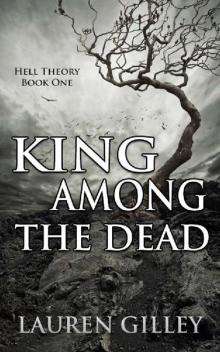 King Among the Dead (Hell Theory Book 1)
King Among the Dead (Hell Theory Book 1)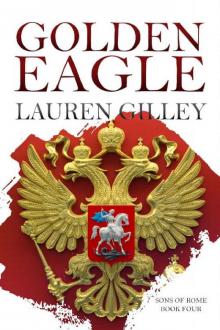 Golden Eagle (Sons of Rome Book 4)
Golden Eagle (Sons of Rome Book 4) Night In A Waste Land (Hell Theory Book 2)
Night In A Waste Land (Hell Theory Book 2)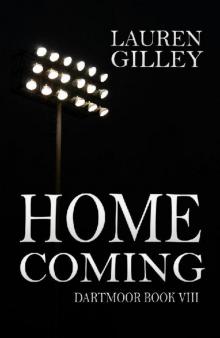 Homecoming (Dartmoor Book 8)
Homecoming (Dartmoor Book 8)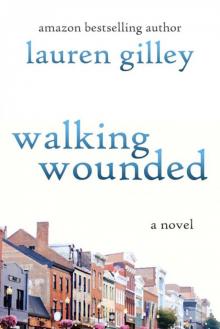 Walking Wounded
Walking Wounded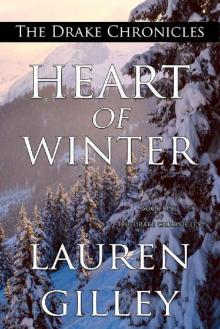 Heart of Winter (The Drake Chronicles Book 1)
Heart of Winter (The Drake Chronicles Book 1)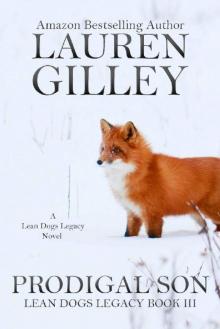 Prodigal Son (Lean Dogs Legacy Book 3)
Prodigal Son (Lean Dogs Legacy Book 3)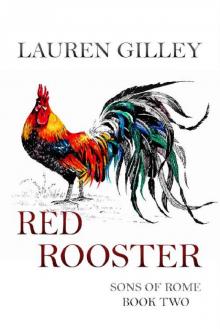 Red Rooster (Sons of Rome Book 2)
Red Rooster (Sons of Rome Book 2)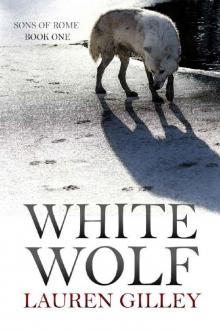 White Wolf
White Wolf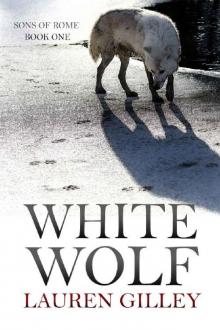 White Wolf (Sons of Rome Book 1)
White Wolf (Sons of Rome Book 1)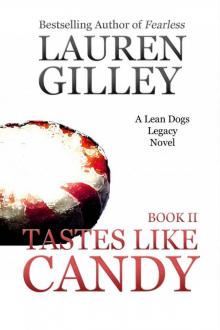 Tastes Like Candy (Lean Dogs Legacy Book 2)
Tastes Like Candy (Lean Dogs Legacy Book 2)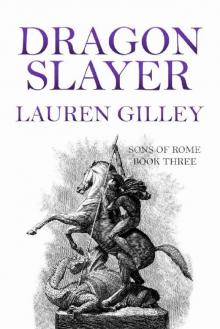 Dragon Slayer (Sons of Rome Book 3)
Dragon Slayer (Sons of Rome Book 3) American Hellhound
American Hellhound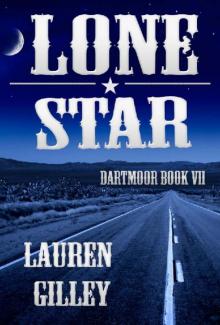 Lone Star (Dartmoor Book 7)
Lone Star (Dartmoor Book 7)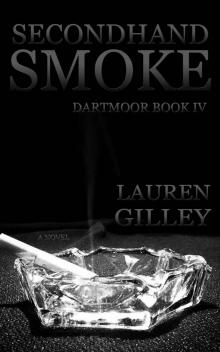 Secondhand Smoke (Dartmoor Book 4)
Secondhand Smoke (Dartmoor Book 4)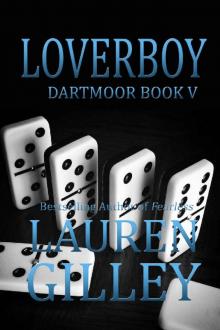 Loverboy (Dartmoor Book 5)
Loverboy (Dartmoor Book 5) The Stalker
The Stalker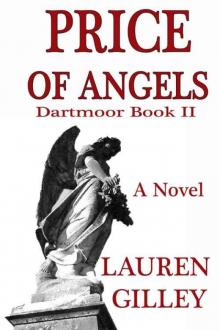 Price of Angels (Dartmoor Book 2)
Price of Angels (Dartmoor Book 2)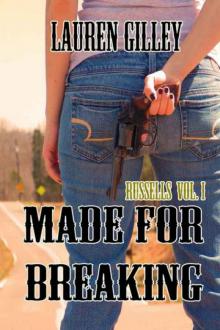 Made for Breaking
Made for Breaking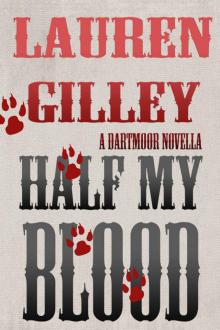 Half My Blood
Half My Blood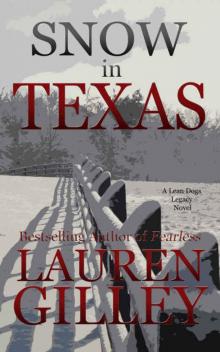 Snow in Texas (Lean Dogs Legacy #1)
Snow in Texas (Lean Dogs Legacy #1)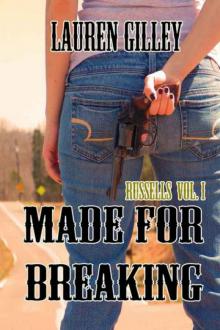 Made for Breaking (The Russells Book 1)
Made for Breaking (The Russells Book 1) Fearless
Fearless